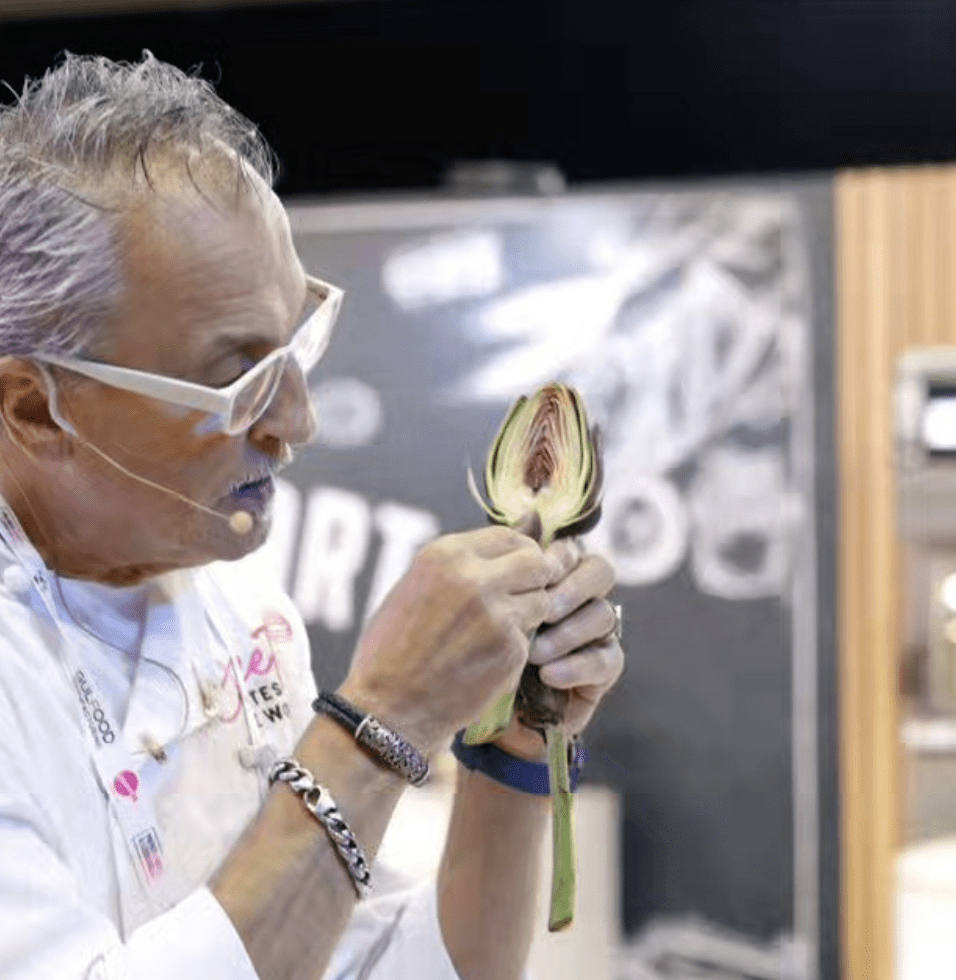Search Posts
Recent Posts
- Business Beat: Citizens, Johnston offers plant-based food options. Plants trees along Greenway. May 16, 2024
- Rhode Island Weather for May 16, 2024 – John Donnelly May 16, 2024
- We Cook! Mill’s Tavern’s Saffron Gnocchi, Shrimp, Scallops, Carmelized Fennel, Cream Sauce May 16, 2024
- RI Veterans: Did you know? 16.05.24 (Events, golf, fishing, discounts, Lejeune info) – John A. Cianci May 16, 2024
- Women & Infants, Union disagree if emergency services are changing to target men and children May 16, 2024
Categories
Subscribe!
Thanks for subscribing! Please check your email for further instructions.

Ask Chef Walter: Keep these foods out of the refrigerator – Chef Walter Potenza
Ask Chef Walter Flavors + Knowledge Segment follower Andrew L. from Laramie, Wyoming, inquired about “foods that don’t need refrigeration”.
Here we go, Andrew!
Refrigeration is vital to modern food preservation, providing a safe and convenient storage solution for perishable items. While refrigerators are essential in most households, it is important to acknowledge that certain food items are unsuitable for cold storage.
In this context, today, I would like to focus on food items that should be kept from the refrigerator. Here we go!
Melons are a prime example of food items that should be kept from refrigerated. Watermelon, cantaloupe, and honeydew are enormous fruits that require significant storage space. Furthermore, refrigeration halts the ripening process, resulting in a less tasty product when compared to room-temperature storage. Additionally, cold temperatures reduce the healthy antioxidants present in melons. Therefore, storing these fruits on the countertop is recommended until they are ready to be consumed. If leftover pieces remain, storing them in an airtight container in the refrigerator for up to three days is advisable.
Raw potatoes are another food item that should be kept from refrigerated. Cold temperatures alter the complex carbohydrates in potatoes, resulting in a sweet taste and gritty texture when cooked. Raw potatoes should be stored in a well-ventilated basket or drawer, away from direct sunlight, to maintain the best flavor and texture.
Honey is a natural preservative with a high sugar content that does not require refrigeration. Storing honey in the refrigerator can cause it to harden and crystallize, making it difficult to extract. It is best to store honey in a pantry. If accidentally refrigerated, it can be returned to liquid by placing the bottle in a hot (not boiling) water pan.
Coffee beans should not be stored in the refrigerator to ensure the best-tasting cup of coffee. The condensation in the refrigerator can affect open coffee packages, which alters the flavor. Fresh coffee grounds can also absorb the odors of other refrigerated foods, altering the taste of the coffee. For the best-tasting cup of coffee, storing coffee in an airtight container at room temperature in a dark place, such as inside a cabinet, is recommended.
Finally, fresh tomatoes should not be refrigerated as it can dull their flavor and make them taste like cardboard. Tomatoes ripen and develop flavor when stored at room temperature. Cold storage halts the ripening process, resulting in a sub-optimal taste. Fresh tomatoes should be stored on the countertop, away from direct sunlight. If you grow your tomatoes, leaving some of the vines attached when harvesting them is recommended, as the vine can help keep the tomato fresh longer and give it a better flavor.
Refrigeration can lead to detrimental effects on the quality of the food items below.
Onions, for example, are prone to becoming mushy and developing mold growth when exposed to a fridge’s low temperature and high humidity. To maintain quality, store onions in a well-ventilated, calm, and dark location, such as an open-weave basket in the pantry.
Bread should also be kept at room temperature for best results. Refrigerating bread can delay mold growth and cause the bread to become stale and rigid. Therefore, storing bread in a bread box or on a cabinet shelf is recommended. Excess bread can be wrapped in freezer paper and stored in the freezer for up to a month.
Similarly, avocados should only be refrigerated once they are fully ripe but not ready to eat. Refrigeration at this stage can extend their shelf life by a day or two. However, refrigerating unripe avocados can prevent them from ripening properly.
Refrigerating strawberries can make them lose their sweet flavor and mushy texture. It is advisable to store fresh strawberries on the countertop, out of direct sunlight, and consume them within a day or two to maintain their quality. Additionally, washing the strawberries-only when ready to eat is best, as washing them beforehand can reduce their shelf life.
Garlic is an essential ingredient in several cuisines. However, refrigerating garlic bulbs can cause them to sprout bitter green shoots and become susceptible to mold growth. Hence, fresh garlic should be stored in a dark, well-ventilated location for optimal flavor. Leftover minced garlic can be stored in the fridge for a day or two, but it may not be as flavorful as freshly minced cloves.
Finally, it is advisable not to store partially used canned food items in the fridge. The metallic container can cause the food to develop a metallic taste. Instead, transferring the unused portion to an airtight plastic food container and refrigerating it is recommended.
Proper storage of fruits and foods is essential to maintain flavor and texture. Here are some valuable tips to ensure optimal storage:
Bananas: Keep unripe bananas in a well-ventilated area, away from direct sunlight. Once ripe, store them in the refrigerator for a few days, but note that the skin may turn black due to ethylene. Refrigerating unripe bananas will impede the ripening process.
Coconut oil contains a high percentage of saturated fats, which causes it to solidify in the refrigerator. It is best to store it at room temperature for up to two years.
Winter squash: Avoid refrigerating butternut squash, acorn squash, pumpkins, or other types of winter squash, as this may dull their flavor and texture. Instead, store them in a dark, excellent spot, such as an unheated basement, to keep them viable for two months or longer.
Apples: Store fresh apples in a cool, dry place away from direct sunlight for optimal flavor. Refrigerate them in an airtight container to prevent them from spoiling other foods in the refrigerator.
Basil: To keep basil fresh, place it in a container with its stems submerged in water, like fresh flowers. Avoid refrigerating basil, which will cause the leaves to blacken and absorb odors from other foods.
Chocolate: To maintain its flavor and texture, Store chocolate in a cool, dry place, such as a pantry. Avoid refrigerating chocolate, as it will absorb odors and change consistency.
Cucumbers: Cucumbers are sensitive to the cold, and refrigeration may cause them to spoil quickly. Store them at room temperature in a well-ventilated area.
Mangoes: Allow whole, uncut mangoes to ripen at room temperature before storing them in an airtight container in the refrigerator.
Peaches: Store unripe peaches in a well-ventilated area at room temperature until they become slightly soft and fragrant. Refrigerate them for a day or two to prolong their freshness, but avoid leaving them in the refrigerator for an extended period, as they may become dehydrated and lose their juiciness.

www.chefwalterscookingschool.com

___

Meet Chef Walter!
There is a constant, recognizable thread in the career of Walter Potenza to elevate the level of Italian culinary culture in the United States. Besides his unquestionable culinary talent and winning business perspective, Chef Walter has been a relentless educator with passion and knowledge who defeats stereotypes. His life, career, and values are a model, an example to follow by any chef of Italian gastronomy working outside Italy.
Chef Walter appears regularly on National and International Networks such as Food Network, ABC, CBS, NBC, RAI, FOX, and Publications such as NY. Times, Washington Post, Wall Street Journal, Food & Wine, Saveur, Gourmet, and several Italian media outlets. And now – RINewsToday!
Travel with Chef Walter!

Chef Walters Cooking School, Cranston, Rhode Island. (Book a class, or purchase a certificate)

